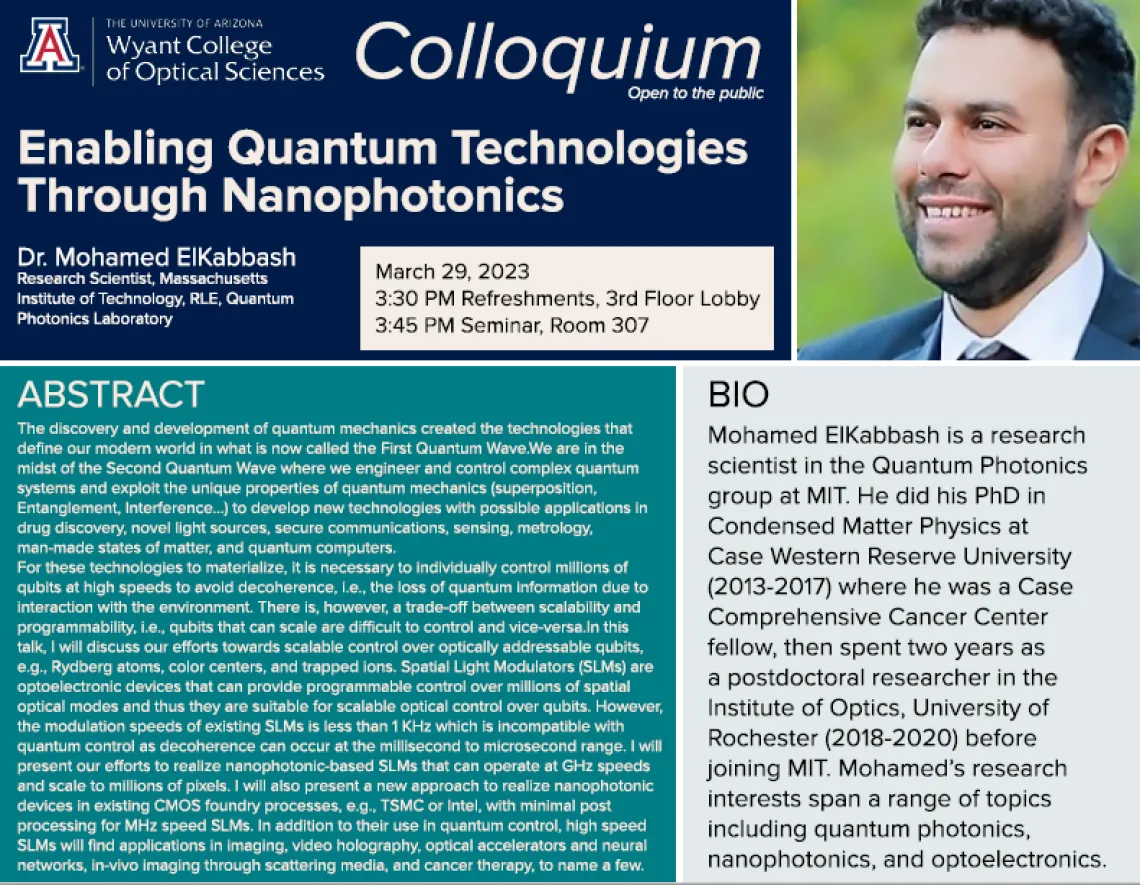
When
Where
Title: Enabling quantum technologies through nanophotonics
Abstract: The discovery and development of quantum mechanics created the technologies that define our modern world in what is now called the First Quantum Wave. We are in the midst of the Second Quantum Wave where we engineer and control complex quantum systems and exploit the unique properties of quantum mechanics (superposition, Entanglement, Interference...) to develop new technologies with possible applications in drug discovery, novel light sources, secure communications, sensing, metrology, man-made states of matter, and quantum computers.
For these technologies to materialize, it is necessary to individually control millions of qubits at high speeds to avoid decoherence, i.e., the loss of quantum information due to interaction with the environment. There is, however, a trade-off between scalability and programmability, i.e., qubits that can scale are difficult to control and vice-versa. In this talk, I will discuss our efforts towards scalable control over optically addressable qubits, e.g., Rydberg atoms, color centers, and trapped ions. Spatial Light Modulators (SLMs) are optoelectronic devices that can provide programmable control over millions of spatial optical modes and thus they are suitable for scalable optical control over qubits. However, the modulation speeds of existing SLMs is less than 1 KHz which is incompatible with quantum control as decoherence can occur at the millisecond to microsecond range. I will present our efforts to realize nanophotonic-based SLMs that can operate at GHz speeds and scale to millions of pixels. I will also present a new approach to realize nanophotonic devices in existing CMOS foundry processes, e.g., TSMC or Intel, with minimal post processing for MHz speed SLMs. In addition to their use in quantum control, high speed SLMs will find applications in imaging, video holography, optical accelerators and neural networks, in-vivo imaging through scattering media, and cancer therapy, to name a few.
Bio: Mohamed ElKabbash is a research scientist in the Quantum Photonics group at MIT. He did his PhD in Condensed Matter Physics at Case Western Reserve University (2013-2017) where he was a Case Comprehensive Cancer Center fellow, then spent two years as a postdoctoral researcher in the Institute of Optics, University of Rochester (2018-2020) before joining MIT. Mohamed's research interests span a range of topics including quantum photonics, nanophotonics, and optoelectronics.
Visit our website for future lecture dates and speaker information
For a list of our archived lectures
